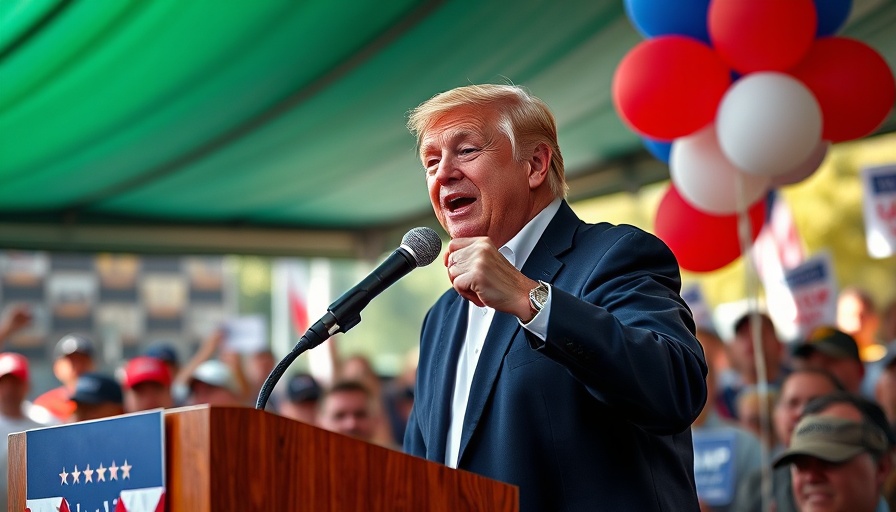
A New Political Landscape in Liberia: The Rise of Vice President Koung
The recent comments made by Vice President Jeremiah Kpan-Koung have ignited a firestorm of commentary and speculation, highlighting the fragile relationship between him and former President George Weah. Despite being labeled a 'common citizen,' it appears that Koung's remarks serve a dual purpose: a rebuke to Weah and a potential precursor to a political rivalry in the upcoming 2029 elections.
Context of Tension: Understanding the Reaction
After a narrow victory for Koung under the Unity Party (UP) and the Movement for Democracy and Reconciliation (MDR) banner in the recent elections, political analysts have noted the growing discord between Weah and Koung. The dissatisfaction stems from what Koung perceives as a personal and political betrayal, particularly considering the historical context in which Koung’s MDR was critical for the success of the UP in Nimba County.
Koung’s outburst, notably during his recent U.S. interview, suggests that the rivalry may be deeply rooted in their shared political history and differing visions for Liberia's future. Such tensions are particularly salient given Liberia's tumultuous past marked by electoral disputes and corruption. As the new administration sets its course, these interpersonal dynamics could significantly shape public governance and political discourse moving forward.
2029 Presidential Election: A Looming Rivalry
The mere notion of a 2029 candidacy for Koung is not without merit. With President Joseph Boakai's advancing age, the political landscape is ripe for a power shift. Current indications suggest that both Koung and Weah may contend for political supremacy, especially given Boakai's immediate goals of recovery and governance priorities.
Political pundits posit that Koung remains strategically well-placed and could pivot back towards his roots in the MDR while examining an alliance with the UP. This potential alignment finely balances traditional party loyalties with newfound opportunities, fostering a new age in Liberia's political architecture.
Implications for Liberia's Governance and Stability
The rivalry between Koung and Weah could have broader implications for Liberia's political landscape and its international standing. As the country seeks to stabilize its democracy amidst regional turbulence—characterized by recent military coups in West Africa—the way its leaders interact could lay foundational attitudes for foreign policy and governance going forward.
Koung's belligerent tone towards Weah indicates intra-party conflicts are far from resolved, raising questions about effective governance when leadership is mired in animosity. Diplomatic relations and economic strategies will hinge significantly on these political dynamics as investors and policymakers assess Liberia's reliability as a partner in trade and international diplomacy.
A Call for Peace and Reconciliation
In light of Liberia’s complex and often painful past, Koung's sentiments toward Weah may serve as a wake-up call for potential alliances, reconciliation efforts, and the necessity for robust governance. Understanding these evolving dynamics is crucial not only for local stakeholders but also for international observers keen on the future of Liberia as it navigates its path in a rapidly shifting geopolitical landscape.
As Liberia prepares for its next electoral cycle, stakeholders—from local voters to international partners—must remain engaged in this unfolding democratic process. It is imperative to foster dialogue and promote unity both in political factions and among the electorate to ensure a bright future for Liberia.
With the political discourse heating up, now is the time for greater involvement in the electoral processes. Active participation and informed discussions are crucial as these leaders lay the groundwork for Liberia's governance, economy, and international relations.
 Add Row
Add Row  Add
Add 


Write A Comment